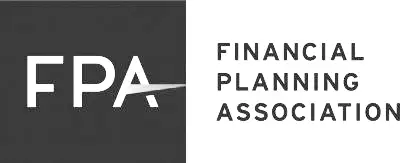When income is earned, generally some amount of tax will be due. Income can come in the form of wages, rental income, interest, dividends, and many others. Most taxpayers will also be presented with another form of income at least once during their lifetime: capital gains due to the sale of their home.
Like other forms of income, one may assume that tax is due on the capital gains realized on the sale, but is that always the case? As with many things regarding the tax code, it depends.
In 1997, the Taxpayer Relief Act was passed. This legislation was one of the largest tax-reduction acts in US history. This act included a provision allowing taxpayers to exclude a portion of the capital gains realized when selling their home, often referred to as the home sale exclusion.
Who Qualifies?
To qualify for this exclusion, two key requirements must be met:
- Ownership Test: a taxpayer must have owned the home for at least 2 years.
- Use Test: a taxpayer must live in and use the home as their primary residence for at least 2 of the last 5 years.
Assuming the two requirements above are met, taxpayers likely qualify for the home sale exclusion and can exclude some or all the capital gains tax that would be due on the profit of the sale. Should either of these requirements not be met, barring qualifying for a partial exclusion as outlined below, the profit of the home sale will be subject to capital gains tax.
It is important to note that a taxpayer can utilize the home sale exclusion multiple times during their life, but two years must have passed since last utilizing it.
How Much Gain Can Be Excluded?
The amount of gain that can be excluded depends on the taxpayer’s marital status. Individual taxpayers filing Single who qualify can exclude up to $250,000 of the gain, and married taxpayers filing Jointly can exclude up to $500,000 of the gain. In the case of married couples, both spouses must meet the use test.
For example, let’s say a married couple purchased a home for $400,000 in 2015. They lived in the home for 4 years, with the home serving as their primary residence, and sold the home for $750,000 in 2019. Given that the Ownership and Use Tests have been met, the couple can exclude the full $350,000 gain.
Had they sold the home for $950,000, the first $500,000 of gain would be excluded, and they would owe long-term capital gain tax on the remaining $50,000 of gain.
Can a Partial Exclusion Be Obtained?
Generally, if either the ownership test or use test are not met, the exclusion is not allowed. There are a few unique circumstances, however, which do allow for a partial exclusion.
One of the following reasons may allow a taxpayer to claim a reduced exclusion on the sale of their primary residence:
- Work-Related Move: a taxpayer, spouse, or anyone else for whom the home was his/her primary residence was required to relocate due to changes in employment, assuming the new job is at least 50 miles farther from their home than their previous job and they meet the ownership and use test when the change in employment occurred.
- Health-Related Move: a taxpayer, spouse, or family member for whom the home was his/her primary residence moved homes to obtain, provide, or facilitate diagnosis, cure, mitigation, or treatment for health problems that occurred during the time of ownership and residence in the home.
- Unforeseeable Events: the IRS also allows for a partial exclusion if a taxpayer, spouse, or anyone else for whom the home was his/her primary residence:
- Dies
- Gets divorced
- Gives birth to two or more children from the same pregnancy
- Becomes eligible for unemployment compensation
- Becomes unable, due to a change in employment status, to pay basic living expenses for the household
The home sale exclusion is a clear opportunity to materially reduce the tax burden due to the sale of a home. Understanding the requirements that must be met to qualify is an important step in planning for the sale of a primary residence.
If you have tax-related questions or you’re interested in financial planning and wealth management services, schedule a free, no-obligation phone call with one of our financial advisors today.





